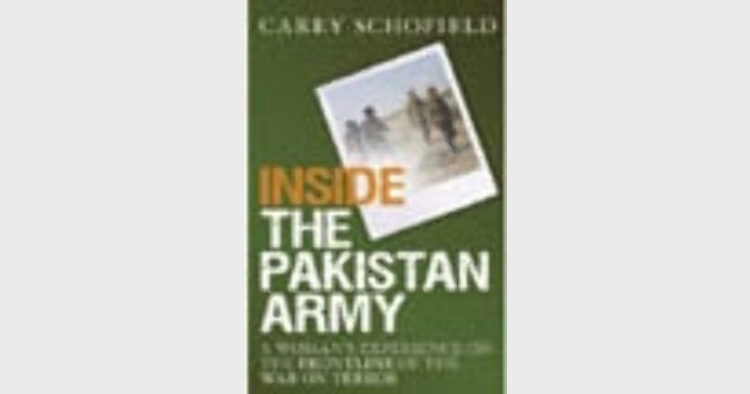
Anatomy of a jehadi outfit?
Inside the Pakistan Army: A Woman’s Experience on the Frontline of the War on Terror, Carey Schofield, Biteback Publishing Ltd, Pp 232 (HB), $ 20.95?
The writer of the book begins with the attack on Osama bin Laden’s haven in Pakistan and his killing by US Navy Seals, resulting in “the violation of sovereignty” of Pakistan, meaning that American troops could carry out an operation on Pakistani soil, far away from the Afghan border, with complete impunity.
The author then talks of the 1971-72 conflict with India when the Pakistani Army was blamed for the loss of East Pakistan. The author says that she found in the Pakistani Army that at least “discourse is reasoned. Militarymen listen to each other and argue logically and courteously. The civilian world outside the cantonments is wild and violent: unreason rules, and shrill voices harangue mindlessly.”
She adds, “The Army looks east, constantly to its traditional enemy. It looks north, anxiously, to Afghanistan,” and ever since Pakistan was created in 1947, “the Army has been its most powerful institution.” She showers accolades on the Army because not only has it governed for half of the country’s history, but it has “produced arguably the most competent and benign governments the country has known, as the political and intellectual elites have demonstrated their impossibility and inability to solve the country’s problems.”
She does not mince words in lauding the Pakistani Army in which the “regimental system, the structure, the terminology and the argot, all come mostly from its forebear, the (British) Indian Army. But it has evolved since 1947 into a unique organisation, partly indigenous and partly Western.” Though the Pakistanis love the inherited titles and the battle honours, “some men in uniform seem to feel that an Islamic military ethos should be fundamentally different from its Western counterpart.”
The Pakistani Army is large, well over half a million strong, not counting the paramilitary forces. The reserve forces (retired officers and men who left the Army within the last eight years) add another half million to the strength. Despite the dangers and political controversies plaguing the Army, “there has never been shortage of people wanting to join the Pakistani armed forces,” the author clarifies. She adds, “Religion is a powerful motivating force in the Pakistan Army. The country was created on the basis of religion and it is therefore clear to any patriotic Pakistani that its interests are Allah’s interests.”
It is amusing to read that “Bharat – the Sanskrit (original name) for India – is the ever present threat. Officers and men speculate endlessly on Indian intentions and capabilities. India, most men in uniform believe, is implacably hostile to the country’s existence and is interested upon absorbing Pakistan’s territories into its own republic.”
While praising the Army for every other thing, the author admits, “It is worth pointing out, though, that intrusive surveillance, leading to an almost total lack of privacy, is a routine feature of Pakistan’s family life.”
(Biteback Publishing Ltd, Westminster Tower, 3 Albert Embankment, London – SE1 7SP)
—MG














Comments